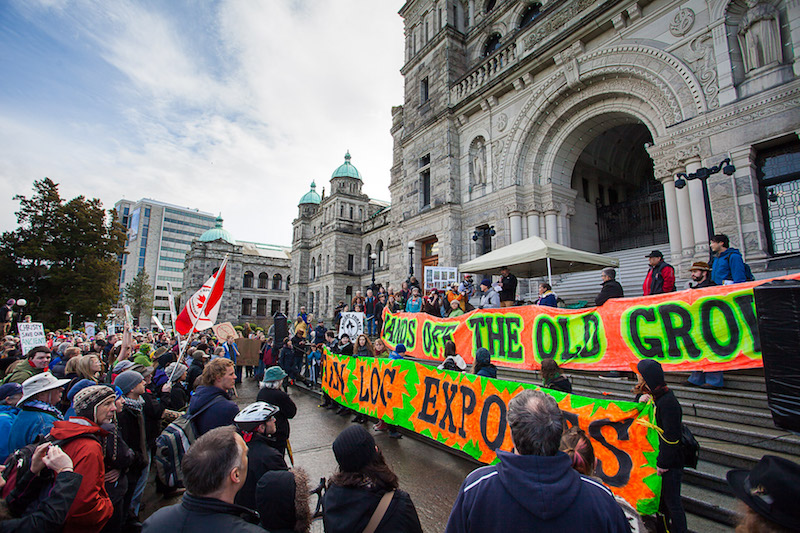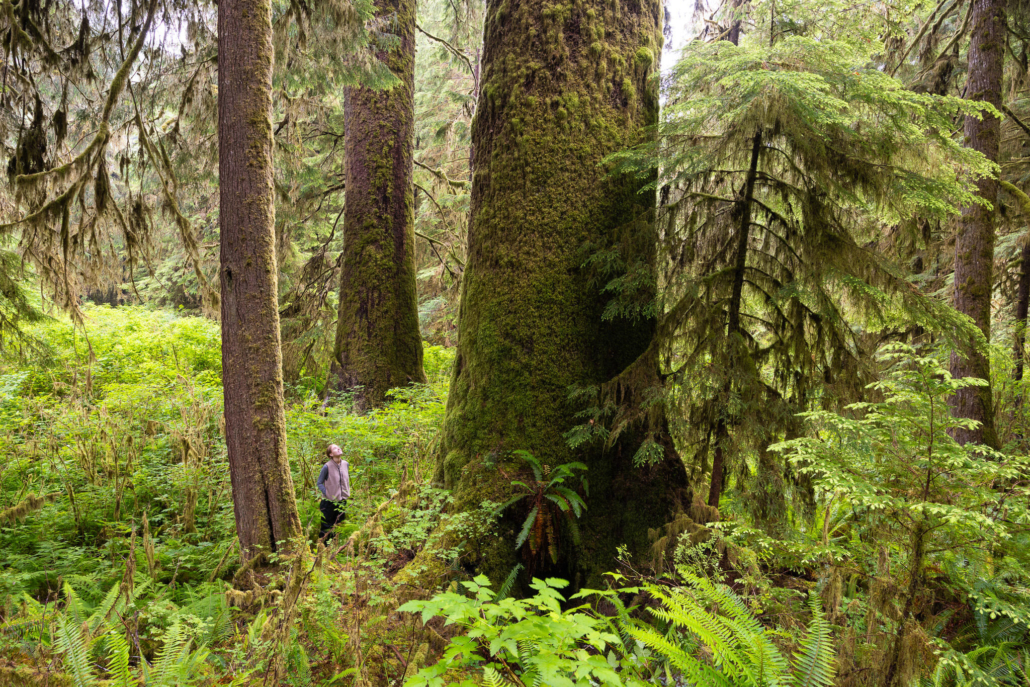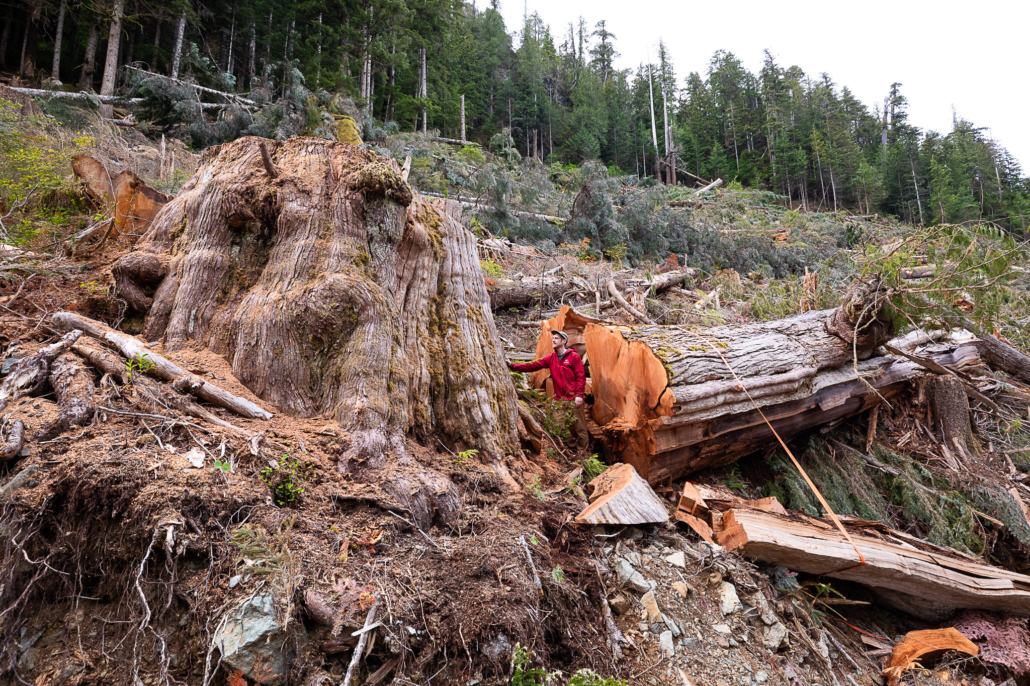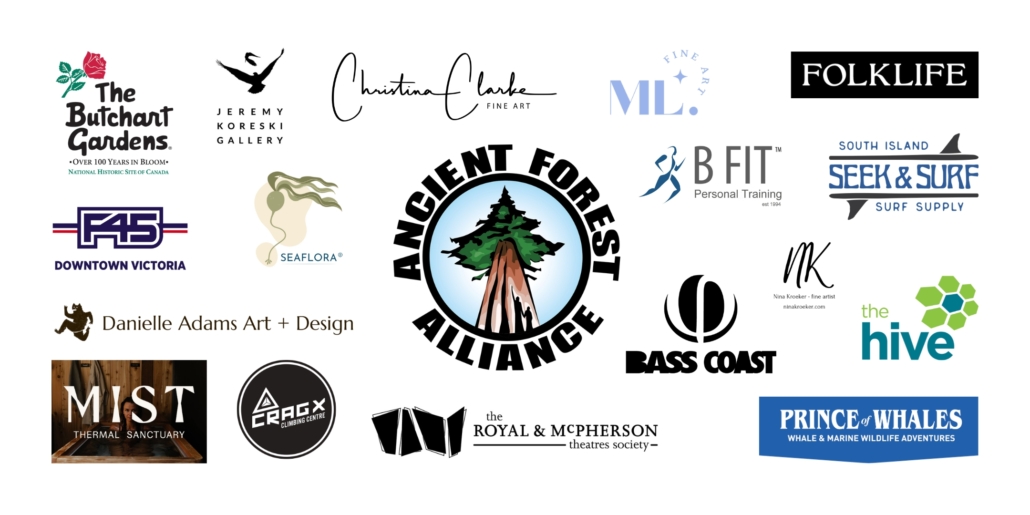 Apr 12 2017
Apr 12 2017Sustainable Forestry Rally Today in Victoria
TODAY, Wednesday, April 12
12:00 noon
Legislative Buildings, Victoria
Speakers will include:
Arnold Bercov (President) and Cam Shiell (Forest Resource Officer) of the PPWC
Ken Wu – Executive Director, Ancient Forest Alliance
Andy MacKinnon – Forest Ecologist and Councillor, Metchosin
Dr. Judith Sayers – Sustainability Consultant, Hupacasath First Nation band member
Torrance Coste – Campaigner, Wilderness Committee
Unifor representative
A brief noon-time rally today organized by forestry workers with the PPWC will be attended by members of the Ancient Forest Alliance (AFA) holding several giant banners against old-growth logging and raw log exports, while the AFA's executive director Ken Wu will be among the invited speakers.
The PPWC and Unifor are two of BC's main forestry unions, and are calling on the BC government to enact policies and regulations to curtail raw log exports to foreign mills and for a sustainable, second-growth forest industry. Last month the PPWC also passed a resolution calling on the province to end old-growth logging on Vancouver, a historic leap forward in the forest politics of the province – see the media release at: https://staging.ancientforestalliance.org/conservationists-applaud-old-growth-protection-resolution-by-major-bc-forestry-union/
Old-growth forests are vital to sustain unique endangered species, tourism, the climate, clean water, wild salmon, and the cultures of many First Nations. On BC’s southern coast, satellite photos show that at least 75% of the original, productive old-growth forests have been logged, including well over 90% of the valley bottoms where the largest trees grow. Only about 8% of Vancouver Island’s original, productive old-growth forests are protected in parks and Old-Growth Management Areas. Old-growth forests – with trees that can be 2000 years old – are a non-renewable resource under BC’s system of forestry, where second-growth forests are re-logged every 50 to 100 years, never to become old-growth again.
See maps and stats on the remaining old-growth forests on BC’s southern coast at: www.ancientforestalliance.org/old-growth-maps.php
In order to placate public fears about the loss of BC’s endangered old-growth forests, the BC government’s PR-spin typically over-inflates the amount of remaining old-growth forests by including hundreds of thousands of hectares of marginal, low productivity forests growing in bogs and at high elevations with smaller, stunted trees, lumped in with the productive old-growth forests, where the large trees grow (and where most logging takes place). “It’s like including your Monopoly money with your real money and then claiming to be a millionaire, so why curtail spending?” stated Ken Wu.
The BC government has allowed on average over 6 million cubic meters of raw logs to leave the province each year over the past 4 years. If BC is to protect its remaining old-growth forests while sustaining forestry jobs at the same time, it must ensure through policies, regulations, and incentives that second-growth logs are manufactured in BC instead of being exported to mills in the US and Asia. See: https://staging.ancientforestalliance.org/news-item.php?ID=1101
The BC government's spin that logs must first be offered to BC mills before they can be exported, a policy known as the “surplus test”, is considered by many to be a disingenuous PR-line, as they've facilitated the closure of most coastal mills in BC over the past 15 years by removing the local milling requirement of logging companies, while not enacting any major incentives or regulations in its place to attract new manufacturing investments. Given that they've help shut down most of the mills, of course most log exports are now surplus to the domestic milling capacity. In addition, many BC mills have been hesitant to bid on domestic logs about to be exported, for fear of being cut out of future direct sales agreements with logging companies (who often want to export their logs) where they can get a more secure log supply to run their mills. “Due to the corporate concentration in BC's forests where a few major logging companies have most of the logging rights, there is a loophole in the surplus test large enough to drive a log barge through”, stated Ken Wu.




